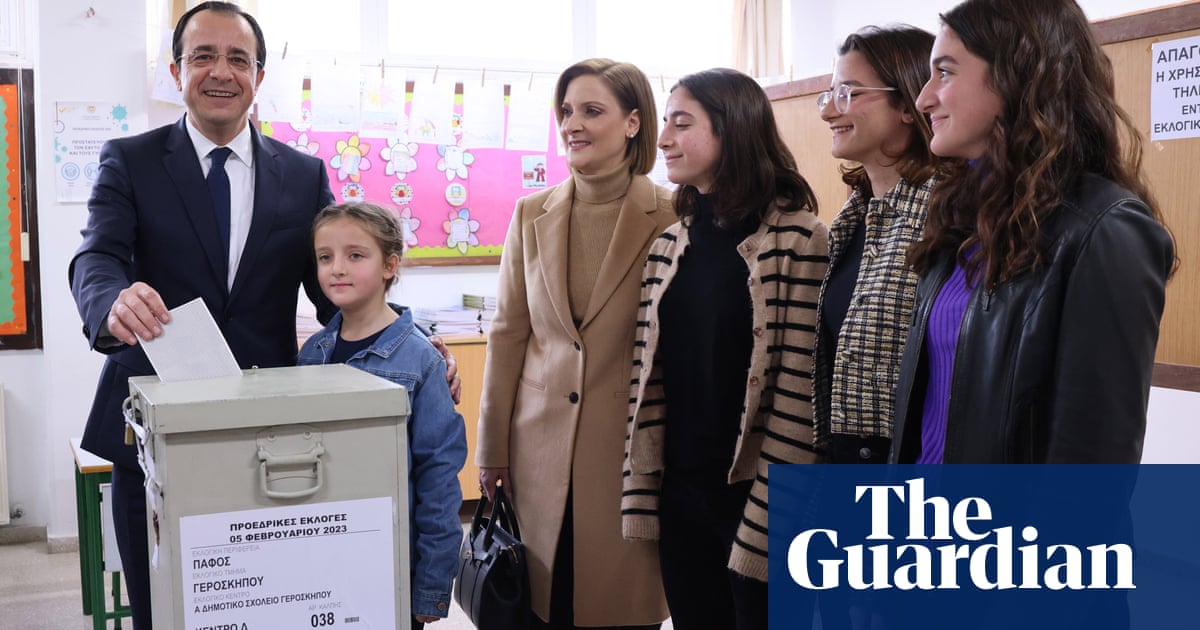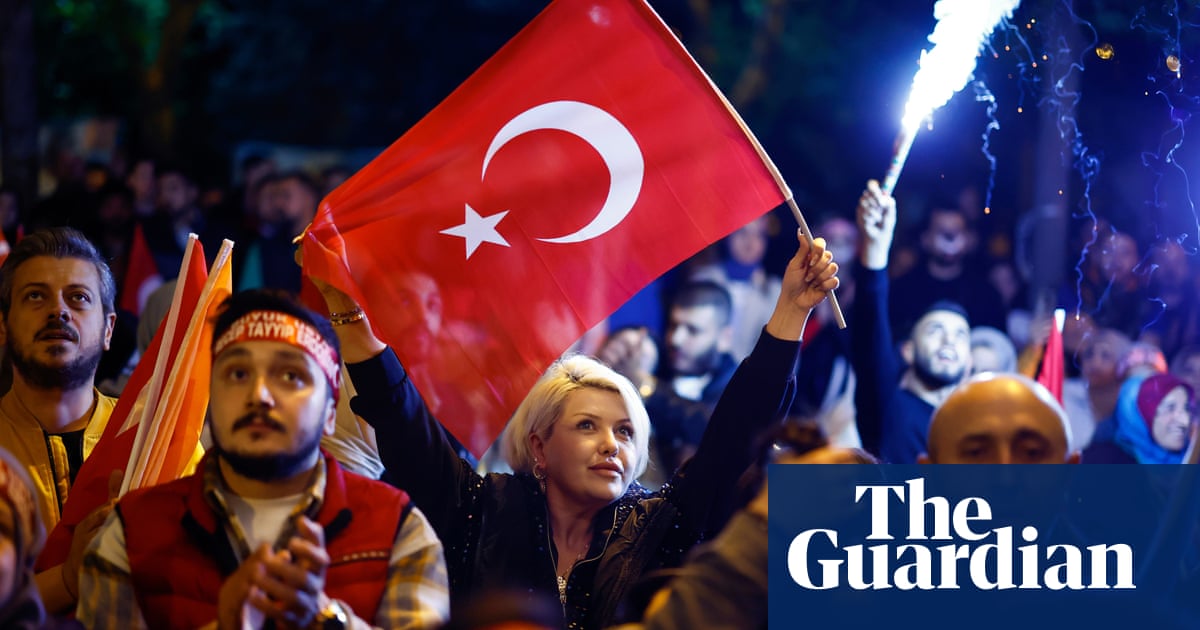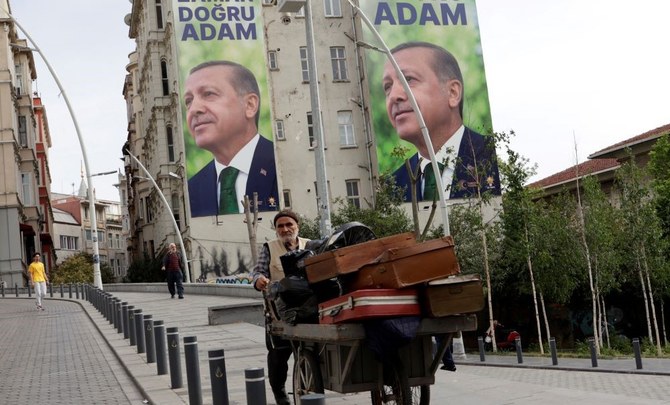
The race to become the eighth president of Cyprus will extend into a second week after the Mediterranean island’s former foreign minister Nikos Christodoulides emerged as the frontrunner but failed to gain enough support to win outright.
The 49-year-old independent will face Andreas Mavroyiannis, a veteran career diplomat backed by the leftist Akel party, in a runoff on 12 February.
Results released by the interior ministry showed Christodoulides winning 32.04% of the vote in Sunday’s election and an unexpectedly strong showing of 29.6% for his opponent.
With all votes counted, Averof Neofytou, fielded by the centre-right Disy party of the twice-elected outgoing president, Nicos Anastasiades, trailed with 26.11%. The outcome will be seen as a surprise as Mavroyiannis was regarded as an outsider.
A first-round win required a candidate to garner more than 50% of the vote.
Christodoulides, who broke away from Disy to run his own campaign with the aid of parties traditionally tough on talks to solve the country’s decades-old division, had been tipped to emerge as the victor although it had been predicted the first-round poll would not produce a clear winner.
“The day after elections should find us all united,” he told reporters after casting his ballot in his hometown of Paphos in the island’s south-west, alongside his wife and four daughters. “The elections will end, but the challenges and problems lie ahead of us.”
A record 14 candidates ran for president. Others included the leading human rights lawyer Achilleas Demetriades, who had campaigned on a ticket of expediting peace talks with the island’s internationally isolated Turkish Cypriot community living on the other side of a UN-patrolled ceasefire line. Demetriades gained 2.1% of the vote.
Cyprus has been split since Ankara sent in troops in 1974, seizing its northern third in response to a coup orchestrated by the junta then in power in Athens aimed at uniting the country with Greece.
A week of frantic horse-trading is expected to follow before next Sunday’s runoff as the first-round winners try to bolster support by forming alliances with opponents who failed to get through.
In a debate on the eve of the election, Christodoulides seemingly refused to rule out joining forces with any party including the ultranationalist Elam.
“A lot of people in Cyprus find the prospect of such an alliance, which would be a legitimisation of the far right, extremely worrying,” said Christoforos Christoforou, a political analyst specialised in elections. “At 6.1%, Elam won more votes than opinion polls had forecast,” he added.
For seasoned Cyprus-watchers this is the most significant presidential poll since the country won independence from Britain 63 years ago.
With peace talks deadlocked since 2017, commentators say it is the island’s ethnic division that is ultimately at stake as concerns grow of its partition being formalised with each passing year.
In an election campaign dominated by other issues – not least the cost of living crisis, migration and corruption – ever more Greek Cypriots, comfortable in the knowledge of their recognised state already being in the EU, appear to have given up on a settlement.
Reunification efforts will require herculean efforts by the incoming president to persuade the international community that Cyprus’s majority population not only wants to resume talks but is willing to make the concessions necessary to make a permanent peace possible.
Since the collapse of the last UN-supported process aimed at creating a bi-zonal, bi-communal federation, Turkish Cypriots in the breakaway north have also hardened their stance with the election of a nationalist leader, Ersin Tatar, who has sought to reset the agenda by demanding a two-state solution. Chasms that have remained unbridgeable since the invasion have only widened.
“Whoever wins will face the challenge of having to convince the UN that resuming negotiations will produce results,” said Christoforou. “This is the first time since 1974 that there has been such a long period without talks and since then both the atmosphere and situation on the ground has deteriorated dramatically.”
Christodoulides has proposed appointing a special EU envoy to facilitate negotiations, while Mavroyiannis, who led peace talks under Anastasiades, has suggested exploiting Cyprus’s offshore natural gas deposits with Turkish Cypriots as a way of easing the process.
About 560,000 Greek Cypriots were eligible to cast ballots although officials said only about 400,000 turned up at polling stations.












